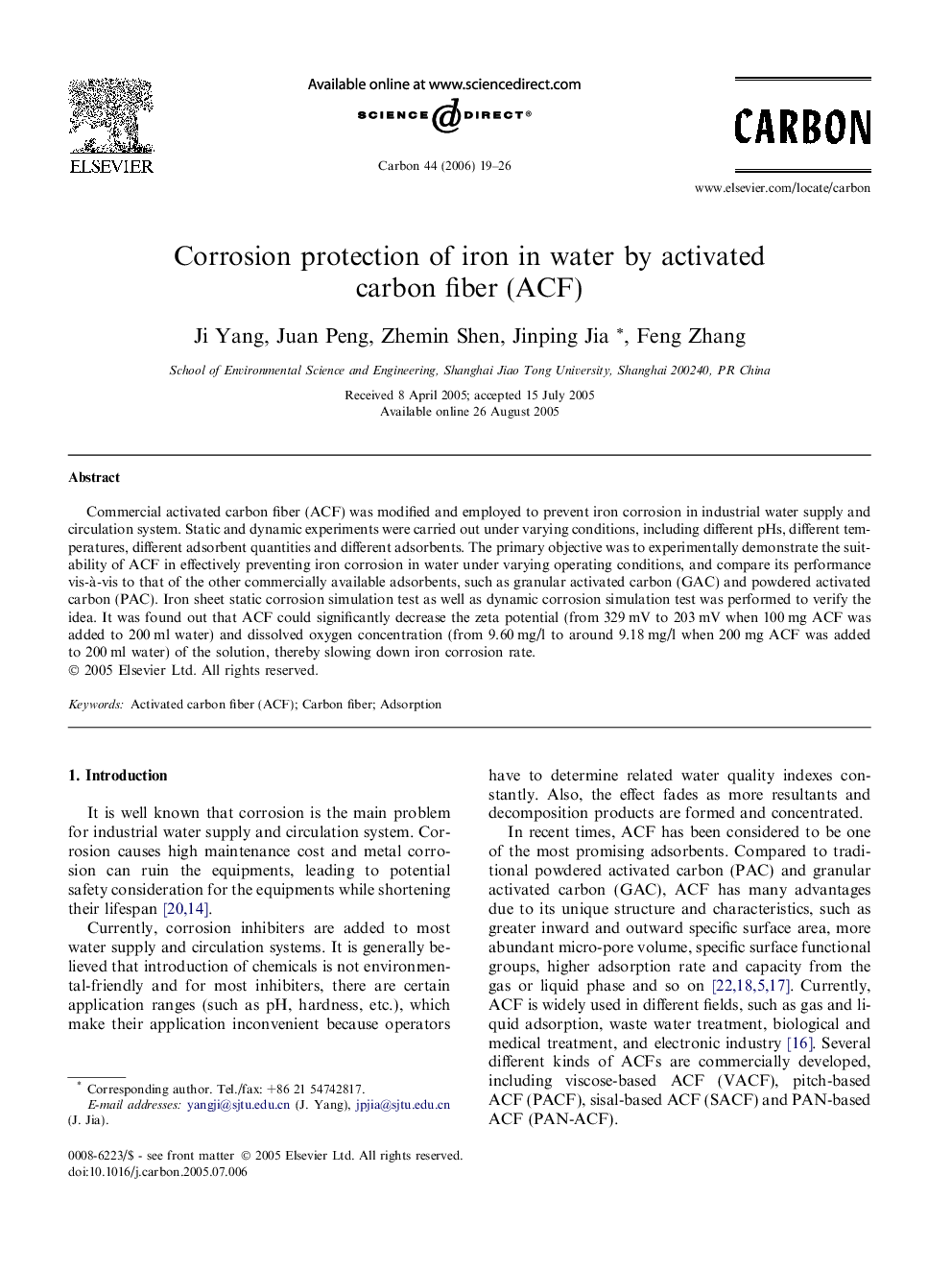| Article ID | Journal | Published Year | Pages | File Type |
|---|---|---|---|---|
| 1420091 | Carbon | 2006 | 8 Pages |
Commercial activated carbon fiber (ACF) was modified and employed to prevent iron corrosion in industrial water supply and circulation system. Static and dynamic experiments were carried out under varying conditions, including different pHs, different temperatures, different adsorbent quantities and different adsorbents. The primary objective was to experimentally demonstrate the suitability of ACF in effectively preventing iron corrosion in water under varying operating conditions, and compare its performance vis-à-vis to that of the other commercially available adsorbents, such as granular activated carbon (GAC) and powdered activated carbon (PAC). Iron sheet static corrosion simulation test as well as dynamic corrosion simulation test was performed to verify the idea. It was found out that ACF could significantly decrease the zeta potential (from 329 mV to 203 mV when 100 mg ACF was added to 200 ml water) and dissolved oxygen concentration (from 9.60 mg/l to around 9.18 mg/l when 200 mg ACF was added to 200 ml water) of the solution, thereby slowing down iron corrosion rate.
